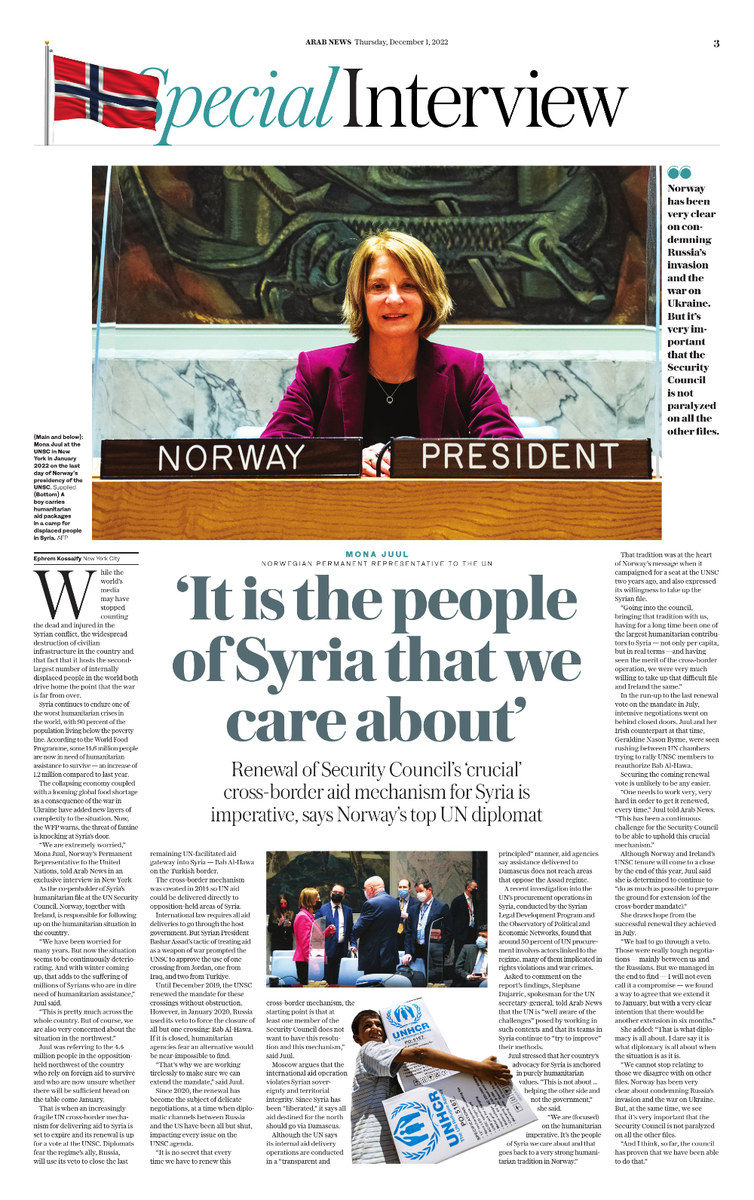NEW YORK CITY: While the world’s media may have stopped counting the dead and injured in the Syrian conflict, the widespread destruction of civilian infrastructure and the second largest number of internally displaced people in the world both drive home the point that the war is far from over.
Syria continues to endure one of the worst humanitarian crises in the world, with 90 percent of the population living below the poverty line. According to the World Food Program, some 14.6 million people are now in need of humanitarian assistance to survive — an increase of 1.2 million compared to last year.
The collapsing economy coupled with a looming global food shortage as a consequence of the war in Ukraine have added new layers of complexity to the situation. Now, the WFP warns, the threat of famine is knocking at Syria’s door.
“We are extremely worried,” Mona Juul, Norway’s permanent representative to the UN, told Arab News in an exclusive interview in New York.
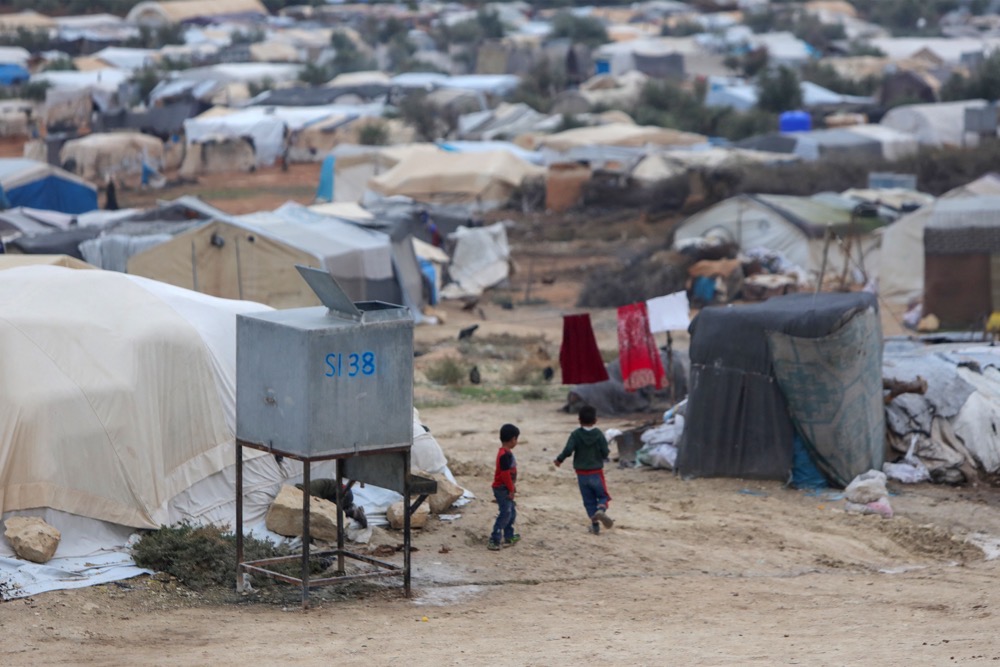
According to the World Food Program, some 14.6 million people are now in need of humanitarian assistance to survive. (AFP)
“We have been worried for many years. But now the situation seems to be continuously deteriorating. And of course, with winter coming up, that adds to the suffering of millions and millions of Syrian people that are in dire need, in acute need, of humanitarian assistance.
“This is pretty much across the whole country. But of course, we are also very concerned about the situation in the northwest, outside the government-controlled area.”
Especially alarming is the condition of 4.4 million people in the opposition-held northwest of the country who rely on foreign aid to survive and who are now unsure whether there will be sufficient bread on the table come January.
That is when an increasingly fragile UN cross-border mechanism for delivering aid to Syria is set to expire and its renewal is up for a vote at the UN Security Council. Diplomats fear the regime’s ally Russia will use its veto to close the last remaining UN-facilitated aid gateway into Syria — Bab Al-Hawa on the Turkish border.
As the co-penholder of Syria’s humanitarian file in the Security Council, Norway, together with Ireland, is responsible for following up on the humanitarian situation in Syria by drafting resolutions, requesting emergency meetings, and organizing mission visits.
The cross-border mechanism was created in 2014 to allow for the delivery of UN aid directly to opposition-held areas of Syria.
International humanitarian law requires that all aid deliveries go through the host government. However, Syrian President Bashar Assad’s tactic of treating humanitarian supplies as a weapon of war prompted the UNSC to approve the use of four aid crossings — from Jordan, Iraq, and two from Turkiye.
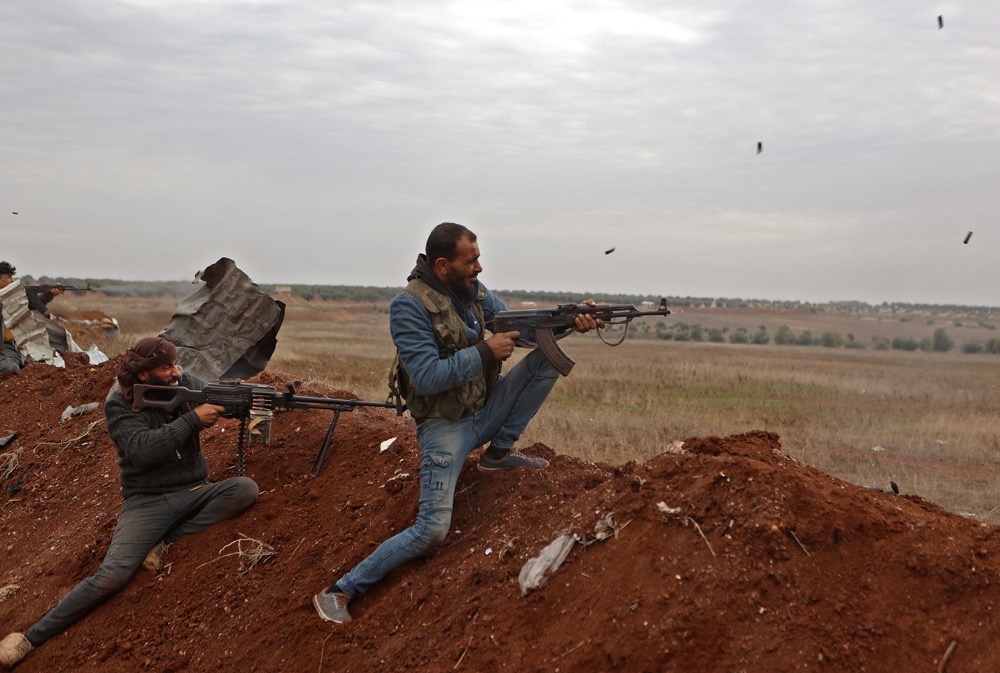
Syria has suffered years of war sparked by anti-government protests during the Arab Spring uprisings across the Middle East. (AFP)
Until Dec. 2019, the UNSC was able to renew the mandate for these crossings. However, in Jan. 2020, Russia used its veto to force the closure of all but one crossing: Bab Al-Hawa.
If this last remaining crossing is closed, humanitarian agencies fear an alternative would be near impossible to find.
“And that’s why we are working tirelessly to make sure that we can extend the mandate of the UN Security Council resolution that allows cross-border humanitarian assistance at Bab Al-Hawa,” said Juul.
Since 2020, the renewal has become the subject of much delicate negotiations, at a time when diplomatic channels between Russia and the US have been all but shut, impacting every issue on the UNSC agenda.
“It is no secret that every time we have to renew this cross-border mechanism, the starting point is that at least one member of the Security Council does not want to have this resolution and this mechanism,” said Juul. “That has been the starting point since the mechanism was established back in 2014.”
Moscow argues the international aid operation violates Syrian sovereignty and territorial integrity. Since Syria has been “liberated,” it says all aid destined for the north should go via the capital, Damascus.
Although internal shipments from Damascus to opposition-held areas would provide a welcome addition to the cross-border lifeline, Juul says they are no substitute. Even if deployed regularly, such convoys could not replicate the size and scope of cross-border operations.
Although the UN says its internal aid delivery operations are conducted in a “transparent and principled” manner, aid agencies say assistance delivered to Damascus does not reach areas that oppose the Assad regime.
They accuse the government of deliberately withholding basic goods and services, including food and clean water, from millions of Syrians as a tool of war.
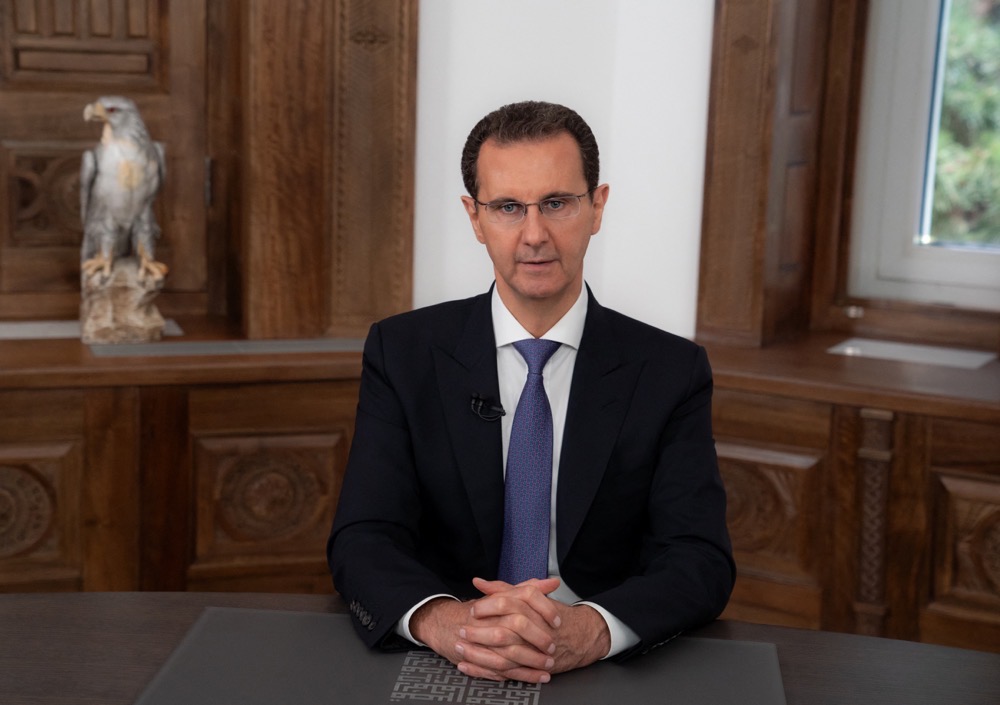
Syrian President Bashar Assad’s tactic of treating humanitarian supplies as a weapon of war prompted the UNSC to approve the use of four aid crossings. (AFP)
A recent investigation into the UN’s procurement operations in Syria, conducted by the Syrian Legal Development Program and the Observatory of Political and Economic Networks, found around 50 percent of UN procurement involves actors linked to the regime, many of them implicated in rights violations and war crimes.
Asked to comment on the report’s findings, Stephane Dujarric, spokesman for the UN secretary-general, told Arab News the UN is “well aware of the challenges” posed by working in such contexts.
He said the UN is engaging with the authors of the report, and that UN teams in Syria continue “to try to improve” their methods.
“The other thing I would say is that there is an increase in terms of the value of items that are procured outside of Syria, but there are items that can only be procured in-country, (such as) telephones, fuel, and so on.
INNUMBERS
• 4.1m People in northwestern Syria in need of humanitarian assistance.
• 80% Syrians receiving cross-border aid who are women and children.
•* 1/3 Proportion of children under the age of 5 who are undernourished.
• 800 Average number of trucks delivering supplies via Turkiye per month.
“It is also important to note that we operate in Syria under the same rules that we operate in every country, in terms of currency exchange and vendors.
“So we are well aware of the challenges posed by us working in many countries, including Syria, and I think the general effort has been one of trying continuously to improve how we work and how we manage the global taxpayers’ money.”
For her part, Juul underscored her country’s advocacy for Syria is anchored in purely humanitarian values. “Our very, very strong argument is that this is not about aiding the opposition or helping the other side and not the government,” she said.
“We are (motivated) purely by the humanitarian imperative to help the people. It’s the people of Syria that we care about and that goes back to a very strong humanitarian tradition in Norway. We are almost always there when there is a humanitarian crisis and we want to help.”
That long tradition was at the heart of Norway’s message when it campaigned for a seat at the Security Council two years ago, and also expressed its willingness to take up the Syrian file.
“We have always had a pretty large portion of our foreign assistance purely for humanitarian work,” said Juul.
“So for us, going into the council, bringing that tradition with us, having for a long time been one of the largest humanitarian contributors to Syria, not only per capita, but in real terms, and having seen the merit of the cross-border operation, we were very much willing to take up that difficult file and Ireland the same.”
Long before it became a wealthy oil and gas producer, Norway had at one time been an aid recipient, and is no stranger to invasion, war and displacement.
“A third of the Norwegian population migrated to America to find livelihoods because we didn’t find it at home. Norway is a very cold country. It’s difficult to survive during winter if you’re poor. So we migrated,” said Juul.
“And then we were occupied by the Germans for five years. We were on the other, aid recipient end. We received Marshall aid from America. We know what it’s like to need aid. And then, of course, we now have the resources to contribute.
“So, there is this strong solidarity with the underdogs, those who are suffering. This is what drives us. We are not being naive about the political complexity in Syria, but we really see no alternative to continuing with the cross-border operation.”
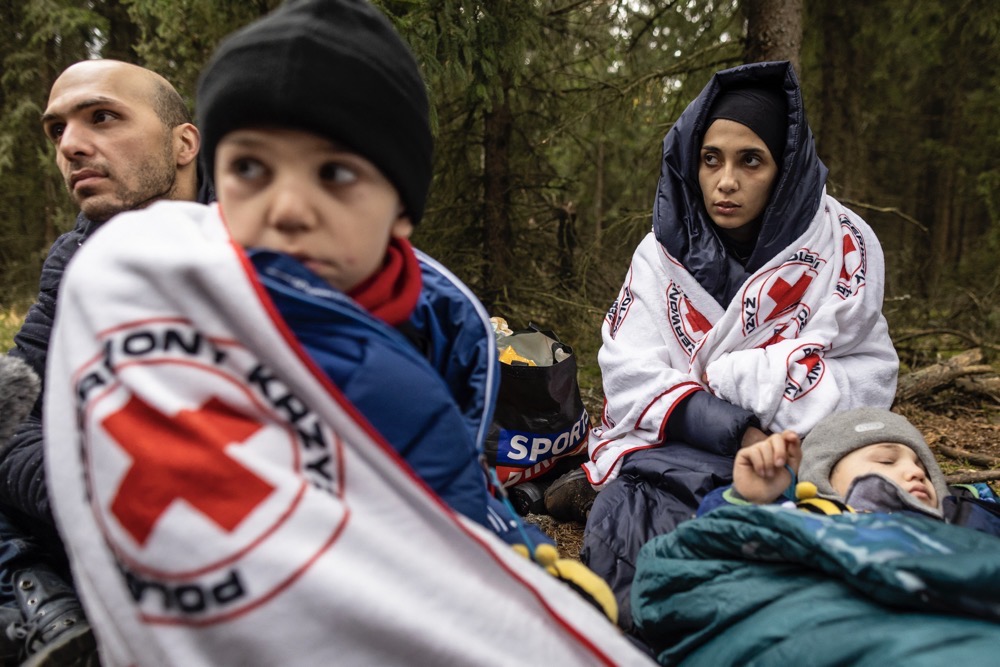
Many Syrians have fled the war, heading to destination like Jordan, Turkiye and Europe. (AFP)
In the run-up to the last renewal vote in July, intensive negotiations went on behind closed doors. Juul and her Irish counterpart at that time, Geraldine Nason Byrne, were seen rushing between UN chambers trying to rally Security Council members to reauthorize Bab Al-Hawa.
Securing the coming renewal vote is unlikely to be any easier.
“One needs to work very hard in order to get it renewed, every time,” Juul told Arab News. “This has been a continuous challenge for the Security Council to be able to uphold this crucial mechanism.”
Although Norway and Ireland’s Security Council tenure is coming to a close by the year’s end, Juul vowed to continue to “do as much as possible to prepare the ground for extension.”
She draws hope from the successful renewal they achieved in July.
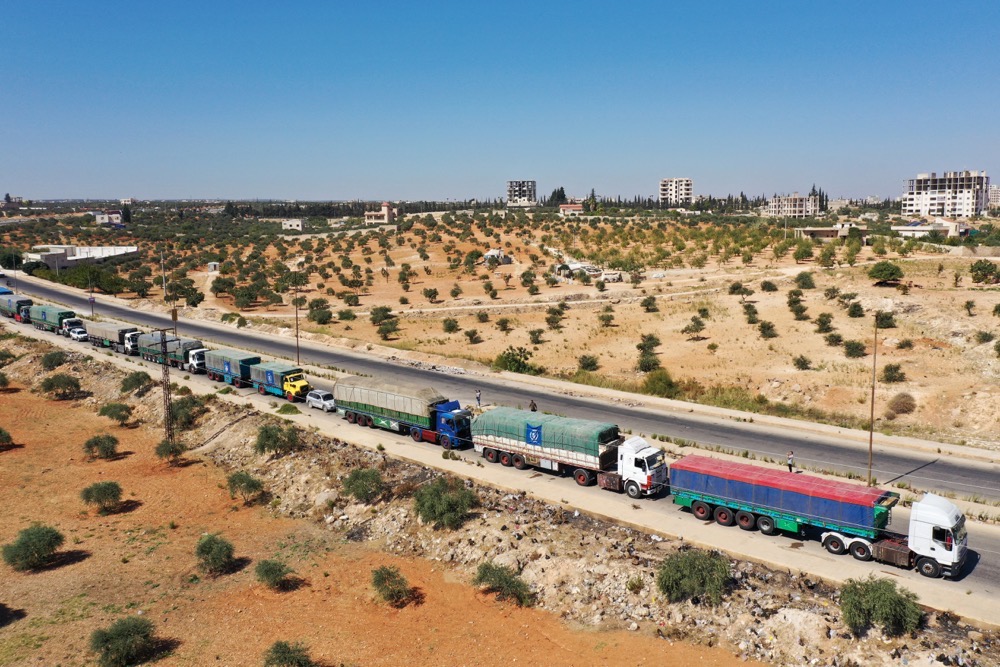
They accuse the government of deliberately withholding basic goods and services, including food and clean water, from millions of Syrians as a tool of war. (AFP)
“We had to go through a veto. It was really tough negotiations mainly between us and the Russians. But we managed in the end to find — I will not even call it a compromise — we found a way to agree that we extend it to January, but with a very clear intention that there will be another extension in six months.”
She added: “That is what diplomacy is all about. I dare say it is what diplomacy is all about when the situation is as it is.
“We cannot stop relating to those we disagree with on other files. Norway has been very clear on condemning Russia’s invasion and the war on Ukraine. But, at the same time, we see that it’s very important that the Security Council is not paralyzed on all the other files.
“And I think, so far, the council has proven that we have been able to do that.”
She added: “We also worked very much together with the other elected members. And we feel that this is an elected-member resolution. We have 100 percent support from all the elected members. And as we say, when the E10 agrees, we are the sixth veto power in the council.”
